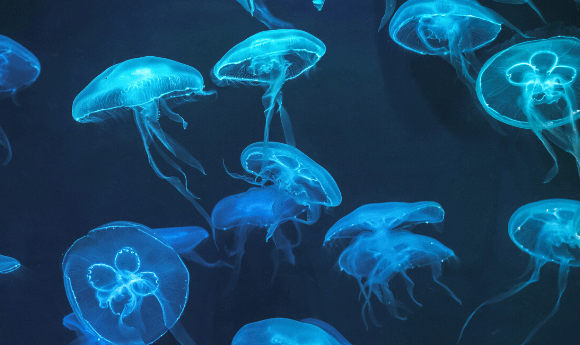Jellyfish collagen: zapping mammalian-source cell cultures into the past?

New study demonstrates jellyfish collagen to be a reliable and sustainable alternative to current mammalian sources for use in cancer cell culture.
As more labs look for ways to be ethical and reduce their environmental impact, the demand for a reliable alternative to mammalian-derived products is on the rise. Issues such as disease vector transfer and irregular reproducibility when using such products has further increased demand, and both the US Food and Drug Administration (MD, USA) and Environmental Protection Agency (DC, USA) have stated an aim to reduce, and ultimately eliminate, animal testing by the year 2035.
One potential option is jellyfish collagen. Shown to be biocompatible to living mammalian tissue, as well as easily tunable and functionalized to support a variety of applications, jellyfish collagen could be a sustainable alternative to currently used products.
Using CRISPR technology, researchers have identified a molecular antidote for jellyfish venom, creating a new treatment for stings that doesn’t involve urine.
In a recent study, published in Frontiers in Bioengineering and Biotechnology, researchers from Swansea University (UK), National University of Ireland Galway (Ireland), Houston Methodist Research Institute (TX, USA) and the marine biotechnology company Jellagen Ltd. (Cardiff, UK) worked to gain a greater understanding of jellyfish collagen from the species Rhizostoma pulmo and its potential as an alternative to mammalian sources.
“This is a great first milestone that will enable us to add further data to ultimately validate this collagen model as a potential alternative for integration into our regenerative medicine platforms and cancer drug discovery/screening tools.”
The study demonstrated that jellyfish collagen could provide a reliable in vitro microenvironment for the ovarian cancer cells OvCa-3 and SKOV-3, particularly supporting their proliferation and migration. It was also able to sustain and support cancer cell attachment, morphology and epithelial to mesenchymal transition markers.
Jellyfish collagen is a sustainable product that may be sourced from a simplistic supply chain and is cheaper than the current gold standard of materials, such as rat tail and bovine sources.
“This is a great first milestone that will enable us to add further data to ultimately validate this collagen model as a potential alternative for integration into our regenerative medicine platforms and cancer drug discovery/screening tools,” commented study author Lewis Francis (Swansea University).
The fight against cancer remains one of the biggest fields of scientific research and, with over 7470 new cases of ovarian cancer diagnosed in the UK between 2014 and 2016, there is a continuing need for new techniques and treatments. Developments of novel biomaterials, such as the jellyfish collagen, should help in working towards finding a cure sooner.
